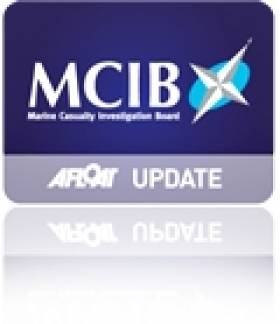Displaying items by tag: James Tate
Fisherman Drowned 100 Metres From Shallows Says MCIB Report
#MCIB - Various factors - including poor buoyancy, suboptimal lifejackets and a fateful late decision to swim to shore - have been identified in the official report into the death of a fisherman off the Waterford coast earlier this year.
As previously reported on Afloat.ie, a major search and rescue operation was launched on 10 January when a 16-foot fishing punt capsized in a strong swell at the sandbar off Brownstown Head near Dunmore East, throwing its two-man crew overboard.
James Tate was able to swim to the nearby shore in the early morning darkness after some two hours in the water. But he became separated from his friend Johnny Flynn - a former member of the Dunmore East lifeboat crew - who was found unconscious in the water by coastguard helicopter before 8.30am.
Flynn was pronounced dead at Waterford Airport shortly after, with a post-mortem concluding that he cause of death was drowning.
The tragedy occurred six years to the day after the sinking of Dunmore East trawler the Pere Charles, which took five lives.
In the official report into the incident, the Marine Casualty Investigation Board (MCIB) found that the fishing punt, already vulnerable to breaking waves as an un-decked open boat, was more susceptible due to its waterlogged condition, and the lack of adequate buoyancy.
It was also found that neither the vessel's handheld VHF radio nor GPS device, or indeed Tate's mobile phone, were available to the pair after the boat turned turtle.
Though both men were wearing lifejackets, they were of a kind that lacked a collar that would have kept the deceased's head above water, nor did they have a light or whistle. Only Tate was equipped with any kind of light, so he could not locate his friend in the dark.
Most importantly, it was found that the boat had overturned within 100 metres of the shallows, so that if the pair had attempted to swim to shore earlier - rather than tire themselves out trying to climb onto the upturned hull - the chances of both men surviving the incident "would have been greatly enhanced".
The full report into the incident is available to download below.






























































